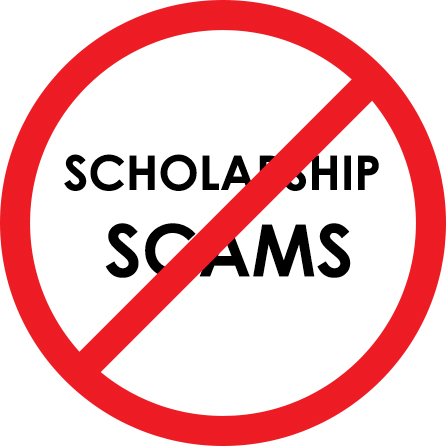
Scholarship Scams How to Spot and Avoid them
For students hoping to fund their education, scholarships offer an essential financial lifeline. However, the rise in demand for these opportunities has led to an increase in scholarship scams. Fraudulent organizations prey on hopeful applicants, promising easy money while ultimately stealing personal information or charging unnecessary fees. Understanding how these scams work and how to identify them is crucial in protecting yourself from financial loss and identity theft.
Common Types of Scholarship Scams
1. The "Guaranteed Scholarship" Scam
One of the most deceptive tactics used by scammers is the promise of a guaranteed scholarship in exchange for a fee. Legitimate scholarships are competitive, and no organization can assure an award simply because an applicant pays. If a program claims that "everyone qualifies," it’s a red flag.
2. Scholarship Processing or Application Fees
Real scholarships do not require any type of payment to apply. Fraudulent scholarship providers might claim that applicants must pay an "application" or "processing" fee, insisting it covers administrative costs. Any scholarship demanding money upfront should be considered a scam.
3. Fake Scholarship Websites and Phishing Emails
Scammers often create professional-looking websites that mimic real scholarship programs. These sites prompt applicants to enter personal details, such as Social Security numbers or bank account information, which can be used for identity theft. Similarly, phishing emails claiming a student has won a scholarship—even if they never applied—are a common tactic used to lure victims into sharing sensitive information.
4. Loan Scams Masquerading as Scholarships
Some fraudulent companies disguise high-interest loans as "scholarship" opportunities. They advertise financial aid but later reveal that recipients must repay the money with interest. Students should always carefully read the terms and conditions before accepting any funds.
5. Unsolicited Scholarship Offers
Receiving a scholarship award for a program you never applied for is a major red flag. Scammers often send congratulatory messages, requesting payment or personal details to "process" the award. Legitimate scholarships require an application process and do not select recipients randomly.
How to Identify a Scholarship Scam
1. Verify the Organization’s Legitimacy
Before applying for any scholarship, research the organization offering the award. A legitimate scholarship provider will have a professional website, clear contact details, and affiliations with reputable institutions. If the scholarship’s website lacks transparency or seems hastily made, it’s best to avoid it.
2. Check for Contact Information
A trustworthy scholarship provider will list an official email address and phone number. Be cautious of generic contact details, such as free email accounts (e.g., Gmail, Yahoo), as legitimate organizations typically use institutional or business domains.
3. Look for Official Reviews and Accreditation
Search for reviews or reports about the scholarship program. Websites like the Better Business Bureau (BBB) and consumer protection agencies often document fraudulent organizations. Additionally, universities and government financial aid offices can confirm whether a scholarship is legitimate.
4. Avoid Scholarships That Ask for Personal Financial Information
Legitimate scholarships do not require applicants to submit banking details, Social Security numbers, or credit card information. If a scholarship application asks for such sensitive data, it’s likely a scam.
5. Trust Your Instincts
If an offer sounds too good to be true, it probably is. Be cautious of high-pressure tactics, such as urgent deadlines that push applicants to submit information without verifying authenticity. Take time to research before making any decisions.
What to Do If You Encounter a Scholarship Scam
If you suspect a scholarship scam, there are several steps you can take:
Do not engage with the scammers. Avoid responding to emails or phone calls, as this can put you at further risk.
Report the scam to authorities. Contact organizations such as the Federal Trade Commission (FTC), Better Business Bureau (BBB), or your country's education department to file a complaint.
Warn others. Sharing your experience can help prevent others from falling victim to the same scam. Online forums, student groups, and financial aid offices are good places to spread awareness.
Secure your personal information. If you’ve already shared sensitive data, consider freezing your credit and monitoring your financial accounts for suspicious activity.
Scholarships can provide significant financial relief for students, but scammers take advantage of the high demand for educational funding. By staying informed, researching thoroughly, and recognizing warning signs, students can avoid falling victim to fraudulent schemes. Always be skeptical of offers that seem too good to be true, and remember that legitimate scholarships will never ask for upfront payments or personal financial details. Protecting yourself from scams ensures that
your scholarship search remains a safe and successful process.









